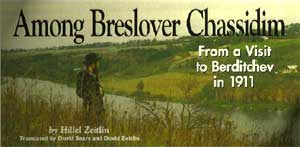It is well-known that Rav Yosef Dov HaLevi Soloveichik used to give shiur in Boston each summer to his talmidim. What is not as well-known is that one year, The Rav, as he was colloquially known, decided to give shiur in Likutei Torah, written by the Ba'al HaTanya, a sefer for which he had a strong affinity, rather than in gemara. When his talmidim protested and said they were not interested, he said something to the effect that his talmidim want his head, and not his heart.
Recently, there was a thoughtful conversation on Facebook about the need to come up with a theology that speaks to the modern observant Jew. Being as I see this as a valuable goal, although not one I am qualified to contribute to, I will not make a suggestion of what it might look like. Instead, I’d like to suggest a less obvious source which could be of value in coming up with such a theology, namely chassidus. Over a series of blog posts, I’d like to flesh out the idea of why I find chassidus to be a valuable source for the thinking modern-Jew who is interested in theology. To begin, I will explain why it is an under-utilized source.
All or Nothing Thinking
There are aspects of chassidus than many moderns, myself included, will struggle to accept. Theurgical ideas, based on kabbalistic sources, often do not speak to many of us.The idea that our mitzvos create worlds or have some sort of effect on God is not one that speaks to many people who might otherwise find value in the ideas of chassidus.
It is a mistaken notion that chassidus is a package deal that must be entirely embraced or rejected. One can, as I do, find great psychological and theological insight in the writings of various chassidic thinkers, without embracing all that they wrote.
Confusion
When I speak with people about chassidus, they are often confused by what I mean. Some think of it as having to do with chassidic communities, dress and mores. Others confuse it with neo-chassidus, which, while it can be of value to some people, is not what I have in mind. Others think of the “Na-Nach” Breslovers and assume that somehow, that approach represents chassidus and/or the thought of Rav Nachman. Whatever the reason, many people who are certain that chassidic thought has nothing to offer them, are rejecting an incorrect idea of what chassidic thought is really about.
Lack of Familiarity
I live in a community which has a large sefarim store. There are all sorts of sefarim and books which can be purchased there, including some which deal with philosophy, kabbalah, and Jewish thought. The one near-exception are works of chassidus. Misnagdic institutions have decided that, even when they touch upon hashkafa, that chassidus is out. This is somewhat surprising considering that some Roshei Yeshiva from that world were influenced by chassidic ideas. To cite just one example, Rav Hutner’s Pachad Yitzchak, in addition to quoting ideas from the Maharal and Ramchal, contains chassidic ideas as well from Ishbitz and Rav Tzadok among others.Additionally, the misnagdic and chassidic worlds of day have more similarities than differences.
Language
Many chassidic works contain language and ideas which are not easy to understand for those who do not have some familiarity with kabbalistic concepts. Even when these concepts are not referred to explicitly, they are part of the background information needed to fully grasp the ideas. Just as one who is not familiar with Greek philosophy misses out when trying to study the philosophical works of the Rishonim, so too some basic familiarity with kabbalistic ideas is required in order to grasp many chassidic ideas.
I’ve laid out some of the reasons that make chassidic thought something that many thinking Jews find either inaccessible or not worthy of study. In a future post, I will attempt to make the case as to how these challenges can be overcome and why it behooves us to do so.






